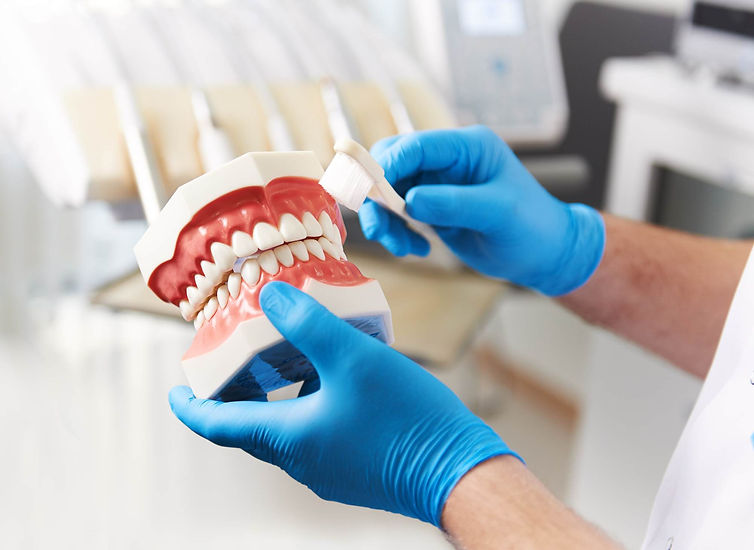
Taking Care of Your Dentures
Due to their delicate nature, dentures are prone to chips and cracks if dropped or not taken care of properly. Moreover, dentures can also be susceptible to plaque buildup, which can cause bad breath, bone loss, inflammation, and fungal infection. Follow these denture care tips to ensure optimal oral health and longevity of your dentures:
-
Soaking dentures in a denture cleaner or diluted white vinegar at night
-
Gently brushing the dentures with liquid soap at night
-
Avoiding the use of toothpaste for brushing dentures
-
Holding dentures with a washcloth to cushion them if they drop
How to Get Used to Dentures?
Follow these tips to adjust to regular denture use:
-
Abide by the post-operation instructions
Follow the aftercare instructions provided to you to ensure proper comfort and healing. Do not remove your dentures repeatedly so that your mouth adjusts to them quickly.
-
Only eat soft food initially
Only eat soft food for a few days after the surgery to avoid any discomfort. You can then begin to cut complex food into smaller bites and eat them with your back teeth. Avoid biting hard food like granola bars to prevent dislodging of your dentures.
-
Practise speaking and exercise facial muscles
Singing and speaking out loud is a great way to exercise your facial muscles and prevent the development of speech impediments.
-
Brush your dentures regularly
Brushing your dentures and gums on a regular basis can prevent bacteria buildup.
-
Use adhesive when needed
A denture adhesive can help soothe irritation. However, if your dentures aren't fitting properly, seek an appointment with your denturist. Adhesives should not be used to fix poorly-fitted dentures.

